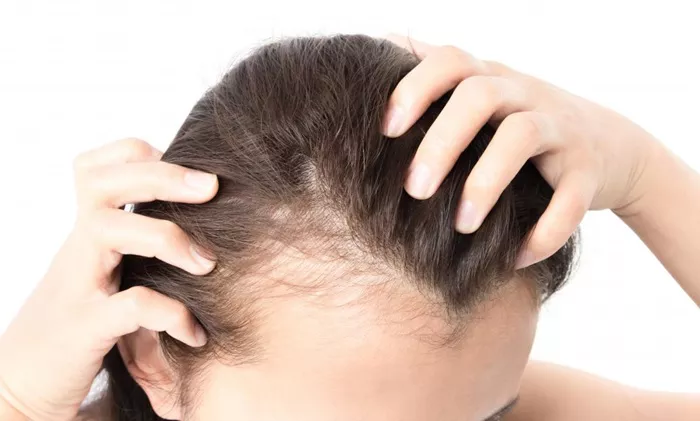Hair loss is a concern for many people. Various factors can contribute to it, including genetics, hormones, and stress. One common belief is that excessive thinking or worrying can lead to hair loss. This article explores the relationship between mental stress and hair loss, examining how psychological factors can impact hair health.
Understanding Hair Loss
Hair loss, or alopecia, can affect anyone. It may occur gradually or suddenly, affecting the scalp or other parts of the body. Several types of hair loss exist, including:
Androgenetic Alopecia: Also known as male or female pattern baldness, this type is genetic and hormonal.
Alopecia Areata: An autoimmune condition that causes sudden hair loss in patches.
Telogen Effluvium: A temporary condition often triggered by stress, illness, or hormonal changes.
The Link Between Stress and Hair Loss
Stress is often cited as a cause of hair loss. When the body experiences stress, it can push hair follicles into a resting phase. This process leads to hair shedding. The connection between stress and hair loss is primarily associated with telogen effluvium.
What Is Telogen Effluvium?
Telogen effluvium occurs when a significant stressor causes hair follicles to enter the telogen (resting) phase prematurely. Stressors can include:
Physical stress, such as illness or surgery.
Emotional stress, such as loss or significant life changes.
As a result, individuals may notice an increase in hair shedding two to three months after the triggering event.
Types of Stress and Their Effects
Different types of stress can affect hair health in various ways:
Physical Stress:
This includes illness, surgery, or extreme weight loss. Physical stress can disrupt the hair growth cycle and lead to telogen effluvium.
Emotional Stress:
Emotional or mental stress, such as anxiety or depression, can also impact hair loss. This stress can lead to changes in hormone levels, further affecting hair growth.
Chronic Stress:
Ongoing stress can have cumulative effects on hair health. Prolonged periods of stress can increase the risk of more severe hair loss conditions.
SEE ALSO: Can Stress Cause Androgenic Alopecia?
How Does Stress Cause Hair Loss?
Stress affects hair loss through several mechanisms:
Hormonal Changes
Stress triggers the release of hormones such as cortisol. Elevated cortisol levels can disrupt the hair growth cycle. High cortisol levels can also lead to increased hair shedding.
Inflammation
Chronic stress can cause inflammation in the body. Inflammation can damage hair follicles and lead to hair loss. This is particularly true for autoimmune conditions like alopecia areata, where the immune system attacks hair follicles.
Nutritional Deficiencies
Stress can lead to poor eating habits. When people are stressed, they may skip meals or choose unhealthy foods. This can result in nutritional deficiencies that impact hair health. Important nutrients for hair growth include:
Protein
Iron
Vitamins (like B vitamins and vitamin D)
Mental Health and Hair Loss
Mental health plays a significant role in overall well-being. Conditions like anxiety and depression can directly affect hair health.
Anxiety
Anxiety can lead to increased stress levels. This chronic stress can trigger hair loss. People with anxiety may also engage in hair-pulling behaviors, known as trichotillomania, which can further exacerbate hair loss.
Depression
Depression can lead to changes in routine, including neglecting hair care. This neglect can contribute to poor hair health and increased hair loss.
Does Overthinking Cause Hair Loss?
Overthinking, or excessive rumination, can lead to stress and anxiety. This, in turn, can contribute to hair loss. Here’s how:
Increased Stress Levels:
Overthinking often leads to worrying about past events or future possibilities. This worry can increase cortisol levels, leading to hair loss.
Neglecting Self-Care:
When someone is preoccupied with thoughts, they may neglect self-care routines. This can include hair care, leading to poorer hair health.
Physical Symptoms of Stress:
Overthinking can lead to physical symptoms of stress, such as headaches or fatigue. These symptoms can further impact overall well-being and hair health.
Coping Strategies for Stress-Related Hair Loss
Managing stress is crucial for maintaining hair health. Here are some strategies to consider:
Mindfulness and Meditation
Practicing mindfulness or meditation can help reduce stress levels. These techniques encourage relaxation and can help manage racing thoughts. Regular practice can promote a calmer state of mind, which may benefit hair health.
Physical Activity
Engaging in physical activity can help reduce stress. Exercise releases endorphins, which can improve mood. Regular exercise also supports overall health, which can positively impact hair growth.
Healthy Eating
A balanced diet rich in essential nutrients supports hair health. Eating a variety of fruits, vegetables, whole grains, and lean proteins can help prevent nutritional deficiencies that contribute to hair loss.
Professional Support
If stress, anxiety, or depression is overwhelming, seeking professional support is vital. Therapists or counselors can help individuals develop coping strategies and address underlying issues contributing to stress.
Hair Care Practices to Support Hair Health
In addition to managing stress, certain hair care practices can support healthy hair growth:
Gentle Hair Care
Using gentle hair care products can minimize damage. Avoid harsh chemicals and opt for sulfate-free shampoos and conditioners.
Regular Trims
Regular trims can help prevent split ends and breakage. Keeping hair healthy can reduce the appearance of hair loss.
Avoiding Heat Damage
Minimizing the use of heat styling tools can help prevent damage. If heat is necessary, using a heat protectant can help protect hair.
Conclusion
While thinking too much does not directly cause hair loss, it can contribute to stress and anxiety, which are linked to hair shedding. Understanding the connection between mental health and hair health is essential. By managing stress through mindfulness, physical activity, and healthy eating, individuals can support their hair’s overall health. If hair loss persists, seeking professional advice is crucial to determine the underlying cause and receive appropriate treatment. Taking proactive steps can help maintain healthy hair and improve overall well-being.
You Might Be Interested In

